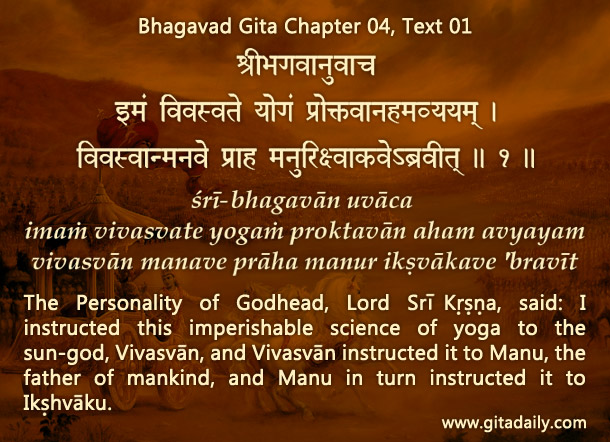History is often a fiercely disputed territory. Many people see history as an extension of their present into the past. Thus, for example, two countries with a long history of animosity may teach radically different accounts of their inter-relationship, with each country painting the other as the villain.
Similarly, people subjugated by foreign powers for centuries may project their own feelings of national inferiority into history. Holding their past culture responsible for their subjugation, they see their national legacy as intrinsically flawed and decry it, denying whatever good others may see in it.
Such is the mentality that makes some Indians crusade against Indian traditions. Their virulence extends even to wisdom-texts such as the Bhagavad-gita. Many thinkers across history and geography have found the Gita profoundly insightful, yet some Indians deride it. They imagine it to be an instigator of religious violence or a perpetuator of the discriminatory caste system or whatever else they find objectionable.
Such people don’t realize that the Gita, though spoken at a particular historical moment, transcends history, for it focuses on timeless principles of living. It offers us a mirror that goes beyond the historical to the trans-historical. The Gita mirror doesn’t show only how past people saw themselves. It also shows something far more universal and consequential: a vision of who we essentially are.
The Gita (04.01) states that it provided the light of knowledge to the sun, which provides the light that enables our eyes to gain knowledge. This suggests that the Gita’s knowledge, having dawned since the time creation began, is meant to be a guidebook for the full duration of creation.
Those fortunate enough to meet Gita teachers who live its core teachings can shed their historical lenses and appreciate the Gita’s transcendental inclusiveness.
To know more about this verse, please click on the image
Explanation of article:
Podcast:


Sir
Your way of explaining a point is the best Hare krishna
Thanks – grateful to be of service.
ys
ccdas
Apast history can not be a mirror to the future events